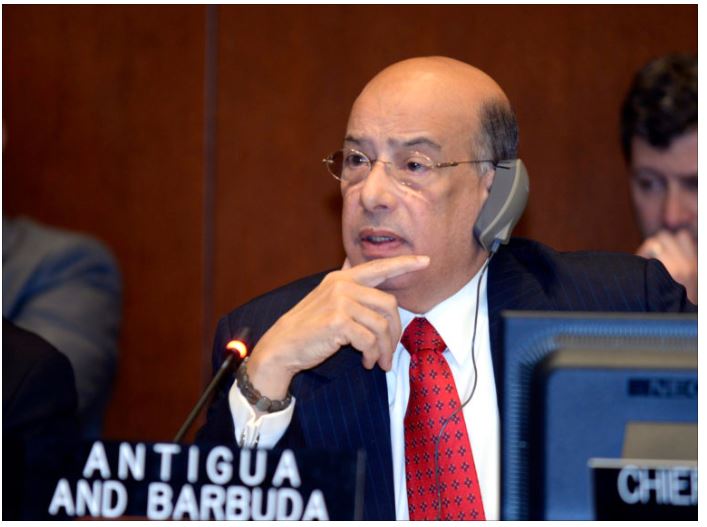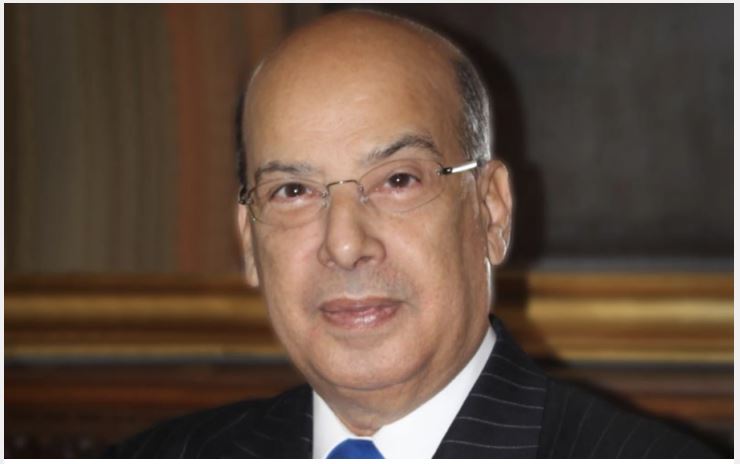By Rebecca Theodore
While most of international attention is absorbed on the novel coronavirus in middle- and high-income regions, it is coincidental that the small states of the Caribbean are now the new testing ground for drugs for COVID-19.
Sadly, the Caribbean is listed in the stark warning of the 250-population scientist and health specialist from around the globe that “Caribbean governments must increase COVID-19 testing before it is too late.”
Added to this, the World Health Organization (WHO) has further suggested that “deliberately infecting healthy volunteers with the virus that causes COVID-19 may speed studies of vaccines against the deadly pathogen.”
And it is from here, that UWI’s dean of the Faculty of Medical Sciences, Professor Terrence Seemugal’s affirmation takes special effect. “Caribbean islanders will be asked to participate in a clinical study on four drugs that are hoped to be potential treatments for COVID-19. The university of the West Indies (UWI) will carry out the studies at their campuses in Trinidad &Tobago, Barbados and Jamaica once approved.”
But while it is good for the Caribbean to gadget all appropriate and firm measures to contain and lessen the pandemic for the wellbeing of all humanity, there couldn’t have been a less opportune time to involve the Caribbean.
Toppled with a United Nations health agency working group report that “human challenge studies such as those administered in the Caribbean pose significant potential dangers to subjects,” and with Harvard School of Public Health epidemiologist Marc Lipsitch’s implication that “human challenge studies pose significant potential dangers for volunteers, and challenging volunteers with this live virus may induce severe disease and possibly even death,” this means that with the poor health-care systems in the Caribbean, testing COVID-19 drugs will be difficult.
Furthermore, the continued splintering of health relations in the Caribbean may result in more reported cases than tests conducted. Unquestionably, COVID-19 drug testing in the Caribbean will further increase the risk of death from a high pervasiveness of chronic conditions such as diabetes and hypertension.
Surely, without aggressive COVID-19 case detection strategies, Caribbean governments will lack the critical skill and capacity to alleviate the social and economic influence of the pandemic. However, even though ‘human challenge studies’ as those that will be conducted in the Caribbean have the probability to reduce the global rate of COVID-19 mortality, Moderna’s Inc. chief medical officer, Tal Zaks, does not believe that the method will be effective in finding a vaccine.
Indeed, “the shot would have to prevent the development of the disease, not just mild infections, or it would be hard to know if the dose picked was the right one.”
Given these circumstances, miscalculating the real number of cases can also create a dishonest sense of security, especially if governments use these numbers to build their political reputations and claim success in containing the pandemic, at a time when creeping dictatorships are evidenced in Caribbean politics.
Moreover, infrastructure, geographic challenges, dependence on tourism for economic survival and reliance on imports for physical sustenance, while straddled with an upcoming hurricane season has further placed the people of the Caribbean at risk for months of continued challenges for COVID-19 testing.
Albeit, PAHO Director Dr. Carissa Etienne’s admittance, that “mass testing is important since it will allow countries to accurately determine how many people within their borders contracted the virus,” calls for special emphasis.
If it is not sufficient to conduct tests in land or air borders, since many infected persons do not experience any symptoms, why should participants be exposed to experimental vaccines in order to make accessible (preliminary) estimates of proficiency and safety? What methods will be used for breaking chains of contagion by tracing back the steps of infected individuals?
Granting Professor Seemugal’s pronouncement that “COVID-19 testing in the Caribbean will form part of the global search for drugs that are effective against the virus, and a chance for the Caribbean to be part of an international approach to treatment,” gains probability.
However, it must be understood, that the process of deliberately infecting people can only be carried out under the eight conditions specified by the World Health Organization (WHO), which include scientific justification, an assessment of potential benefits, and the fully informed consent of all subjects. Initial studies should only be limited to young healthy adults between 18-30 years old with the exclusion of the poor and socially vulnerable.
Although it is true that “when drugs are used globally, the studies were not based on Caribbean patients, therefore, it is usually unknown how locals will react to them,” it must also be seen that there is no large data set regarding demographic distribution of licit drug use or of illnesses and deaths in the Caribbean.
The Caribbean rely on global shipping for imported foods, medicines, and other necessities. With a US economic blockade in place and with fewer flights between the islands and the United States, food insecurity, health care, and supplies are at a continued menace of worsening.
Then, to what ends will COVID-19 drug testing in the Caribbean serve the people of the Caribbean in terms of their economic survival? How will US$30.5 million assist Caribbean governments’ fight against COVID-19 over the next six months?
Irrefutably, COVID-19 testing in the Caribbean will allow governments to save lives by labelling and treating cases, traversing infection and eluding the risks of additional pandemics and epidemics, but this innovative Coronavirus is an unrivaled adversary.
The Caribbean will not escape unscathed.





Fake news. What a load of BS!
Don’t try that shit…don’t let this be slavery 2.0
Nor unless the risks are clear and they can confirm and trust that it’s not going to make them worse.
No
Hell no
No way
NO
Hell no….no trials in the Caribbean
No… conduct it in the developed countries
NO….
I believe that’s what our leaders are going to do the US and Europe seeing how good most of the Caribbean countries are doing so they are going to use us as lab rats
Hell no!